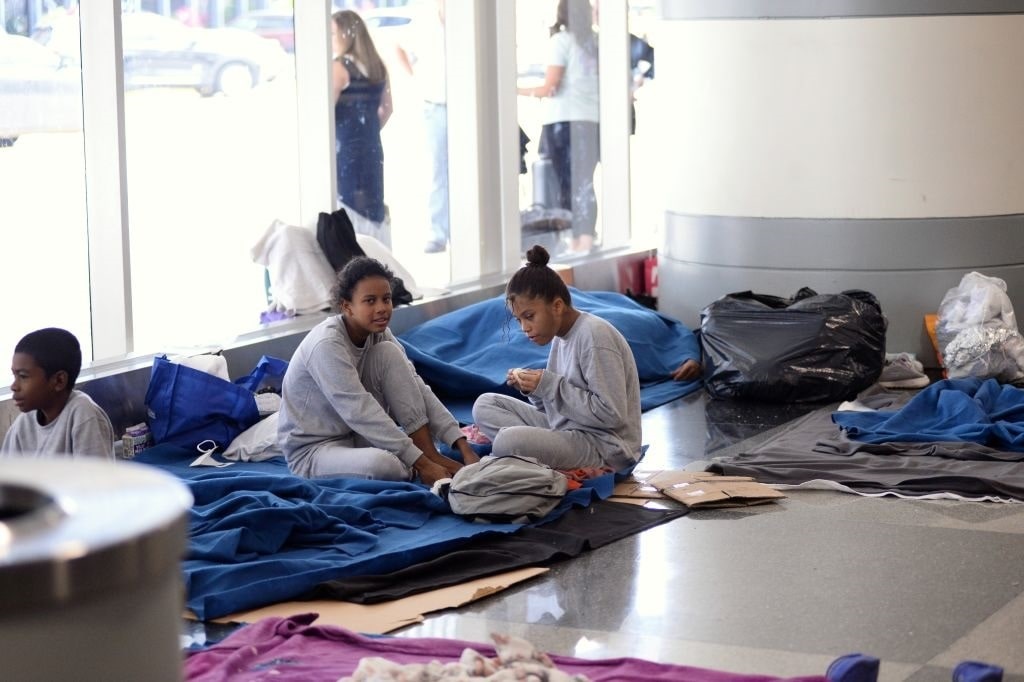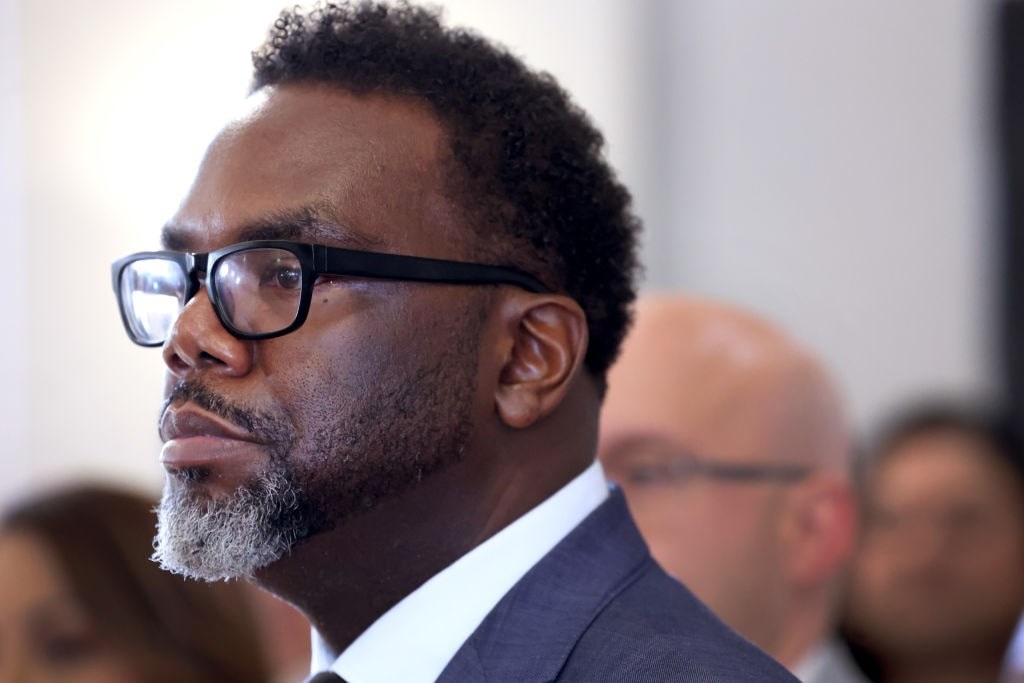



The immigration tides are changing in Chicago. Democrat Mayor Brandon Johnson has decided that the Windy City just can’t keep up with the shelter needs for migrants. The city, like so many others, has become overtaxed trying to provide resources for many people crossing the border illegally who land on its doorstep. With insufficient help from state and federal officials, Brandon has implemented a string of controversial measures this month to try to regain some control.

Brandon Johnson (Photo by Scott Olson/Getty Images)
A sanctuary city, Chicago will essentially be closing its doors to new asylum seekers. Johnson announced to the city council on Jan. 19 that shelters for illegal immigrants are just costing too much money. Since 2022, more than 34,000 migrants have arrived in Chicago, leaving the housing system running at full capacity.
Politico obtained a briefing from the city that stated 608 buses carrying undocumented persons have arrived since August 2022 and 501 since May 12, 2023. Currently, 28 shelters within Chicago hold 14,967 migrants; more than 5,000 are minors. As of Jan. 16, there are no beds available.
Another controversial move by the mayor established a 60-day eviction measure, meaning migrants in shelters have 60 days to relocate. Originally, the first group was supposed to have left by Jan. 15, but they were given an extension because of a storm to “at least” Jan. 22. This was further extended to Feb. 1. The city sent notices to 7,842 residents. This edict applies whether or not the immigrants have a place to go, and some of the residents have been sheltered since 2022.
This change in policy directly contradicts Chicago’s sanctuary city ordinance, which reads: “Chicago’s Welcoming City Ordinance means that the City will not ask about your immigration status, disclose that information to authorities, or, most importantly, deny you City services based on your immigration status.”
However, Illinois Gov. J.B. Pritzker (D) is not happy with Johnson’s new procedures, saying he is “deeply concerned” that Chicago is neither adding bed space nor erecting new shelters. At an earlier press conference, Pritzker remarked: “We do not have enough shelter as it is in the city of Chicago. We need to make sure that we’re not ending shelter capacity, as the city is now planning to do, at the end of winter. If you think this problem is going to end when the temperature warms up, it’s not. We still need shelter for people.”
Johnson’s office, though, believes if the governor has a problem with the arrangements Chicago is making, he should step up with some assistance. In a statement, Ronnie Reese, spokesperson for the mayor, wrote:
“There are 1,300 municipalities in the State of Illinois, of which Chicago is one. The State has the authority to fund, stand up and operate a shelter in any one of those municipalities at any time that it chooses, including the City of Chicago. Thus far, the City of Chicago has carried the entire weight of the new arrival mission, sheltering nearly every asylum seeker sent to Illinois.”
A Pritzker official retorted that’s just not true, saying, “The idea that they are shouldering all of this on their own is ridiculous.” Meanwhile, it’s the legal residents footing the bill. Illinois taxpayers spent at least $648 million on the migrant crisis, according to WTTW News, which includes $160 million announced in November. Of that, $65 million is allocated to shelters while the rest is tagged for support and caseworkers as well as an intake center that should be completed this month.
